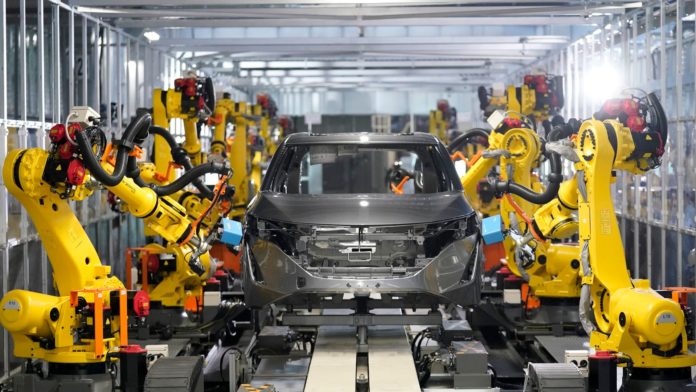Key Takeaways
- Nissan introduces gigacasting for EV parts to reduce costs by 10%.
- Nissan intends to achieve cost parity with combustion cars by the end of the decade.
- Construction is progressing on a new battery line devoted to solid state cells.
Nissan is taking a leaf out of Tesla’s book, introducing gigacasting to the manufacturing process of future EV parts. The Tesla Model Y made gigacasting famous, but the idea is simple – it’s a form of integrated die-casting production where chassis parts are formed in large aluminum pieces that are then joined together. This approach saves costs by reducing individual components, but it must be done perfectly to prevent these large pieces from warping and cracking. Whatever the drawbacks, the benefits seem to outweigh them because Nissan is not the first legacy automaker to copy Tesla’s homework. In fact, since the Model Y was introduced in 2020, automakers to explore gigacasting have included Volkswagen, Hyundai, Ford, and Toyota.
Reduced Costs
Nissan wants to reduce the cost of producing EVs so that they are priced closer to what traditional combustion cars are sold for and says that this new approach will reduce manufacturing costs by 10%. This is part of its broader plan called The Arc, through which Nissan aims to introduce 30 new models by 2027. By 2030, Nissan wants to achieve cost parity between combustion and all-electric vehicles.

Related
Ford And Hyundai Following In Tesla’s Footsteps With Advanced Production Techniques
Both automakers have signed a deal with Idra, an Italian casting machine maker supplying Tesla with advanced machines.
According to Hideyuki Sakamoto, Nissan won’t be starting from scratch. “We have been using casting boards for front air conditioner structural parts at our Tochigi plant for more than 10 years,” said the executive VP for manufacturing and supply chain management, adding that the Japanese automaker is “quite experienced in casting car structures.”
Several EVs On The Way
Among those 30 new models coming from Nissan may be the Xterra, a Nismo version of the Ariya, and a new pickup developed with Mitsubishi. In addition, it was announced last month that Nissan and Honda are officially exploring an EV partnership, showing that the Yokohama-based automaker is putting its eggs in several baskets, and these baskets won’t all be budget-conscious.
Today, Nissan revealed that a new all-solid-state battery pilot line is under construction, with the carmaker planning to introduce these batteries in road cars by 2028. Four new trademarks discovered recently indicate that Nissan has four wild concepts waiting in the wings, and with names like Evo, Epic, and Era, we doubt these concepts will be for cheap family cars.

Related
Nissan Planning 4 Wild Concepts: Evo, Epic, N7, And Era
Trademark filings reveal four new Nissans are on the way.


